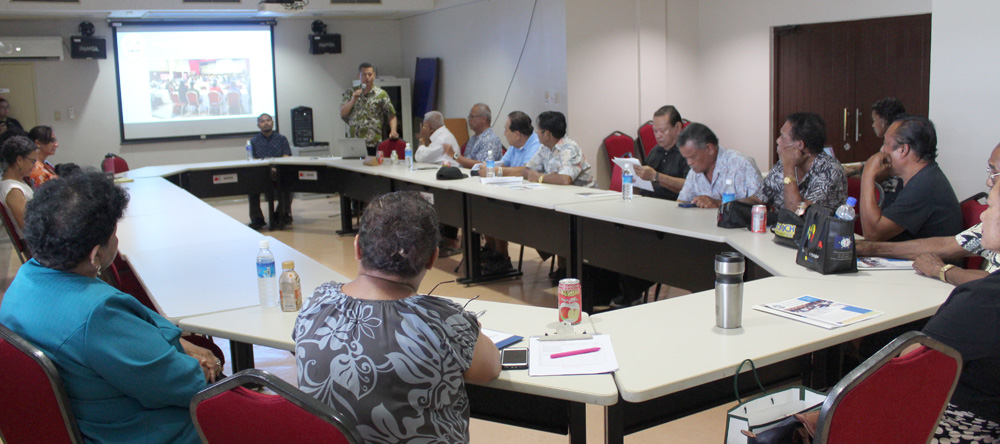- Education
PICRC updates Rubekul Belau on conservation, sustainability, and research projects
For over five years, the Palau International Coral Reef Center has been providing annual updates to the Rubekul Belau. Keeping to this tradition, the Center met with the Rubekul Belau earlier this week, on October 6, 2020, to present progress to date on the Center’s newest mandate, the Palau National Marine Sanctuary (PNMS). In addition to sharing updates on the various facets of the PNMS, including ongoing efforts in education and awareness campaigns and research on the movement of tuna in and out of Palau, Dr. Yimnang Golbuu, the Chief Executive Officer of PICRC, also talked about the Center’s operations and their upcoming 20th Anniversary in January 2021.
The Planning Team of the 3rd National Environment Symposium (NES) took this opportunity to present the policy recommendations based on the recently concluded 3rd NES. The policy recommendations called for increased resiliency of Palau based on local ownership of three aspirations: food security, economic diversification, and renewable energy production. In summary, the 3rd NES policy recommendations revolved around the fact that to achieve resiliency, Palau needs to reduce its dependence on outside goods and services, and focus on local investment to produce them, whenever and as much as possible.
To effectively carry out its overall mandate to conduct marine scientific research and guide conservation and natural resource management efforts, the Center relies on input by the community, including Palau’s elected and traditional leadership. The engagement of leaders has always been an integral part in ensuring that research projects are relevant and applicable to the decision-making process. PICRC is honored to work with Rubekul Belau to ensure that conservation work and marine research is firmly rooted in our culture and traditional understandings of nature. High Chief Reklai Bao Ngirmang closed the meeting by saying, “A Beluu ma Daob a diak el klokled. Ng kloklir ar belboteb el chad el merael mei,” or, in English, “The land and the sea are not ours; they belong to those who are passing through in the future.”


